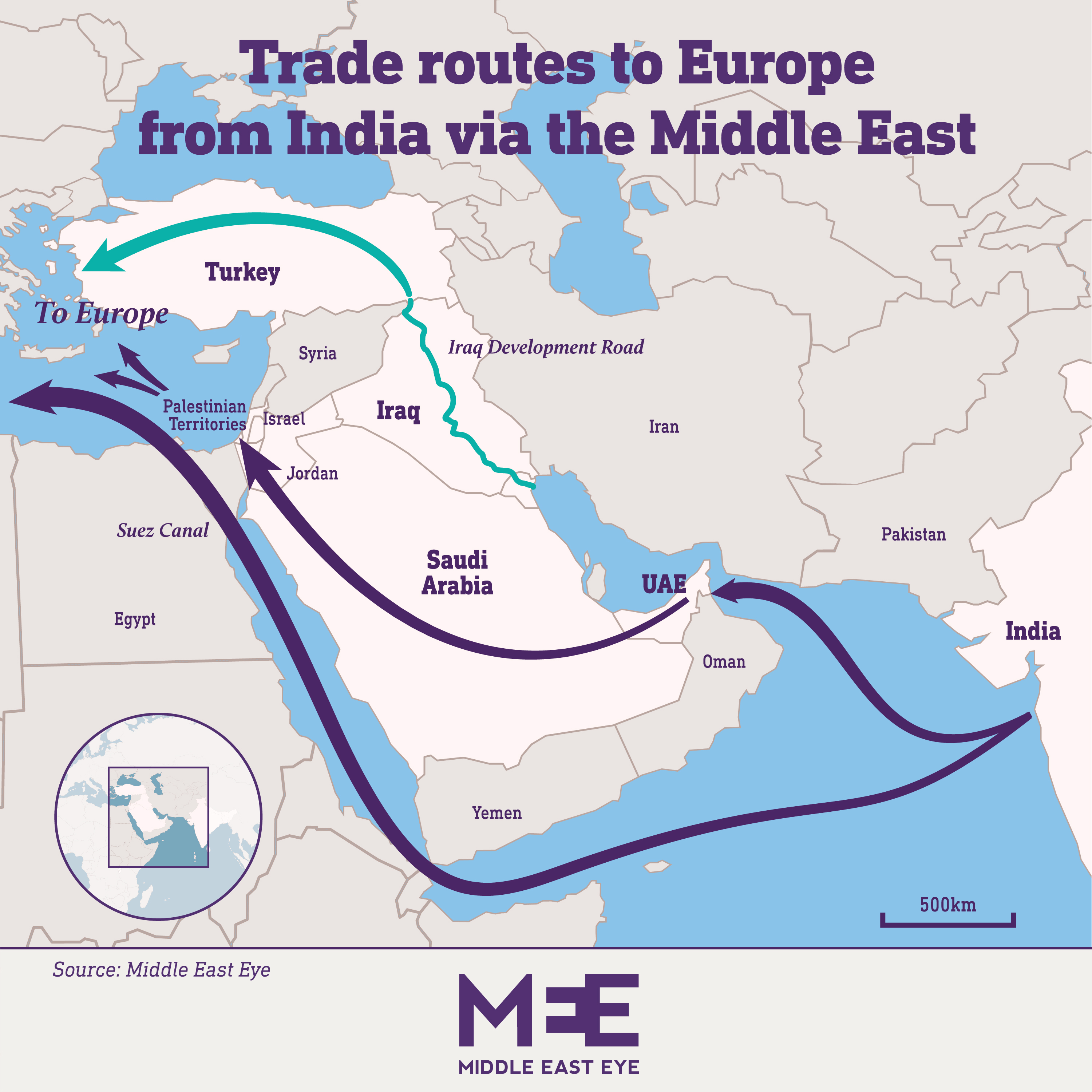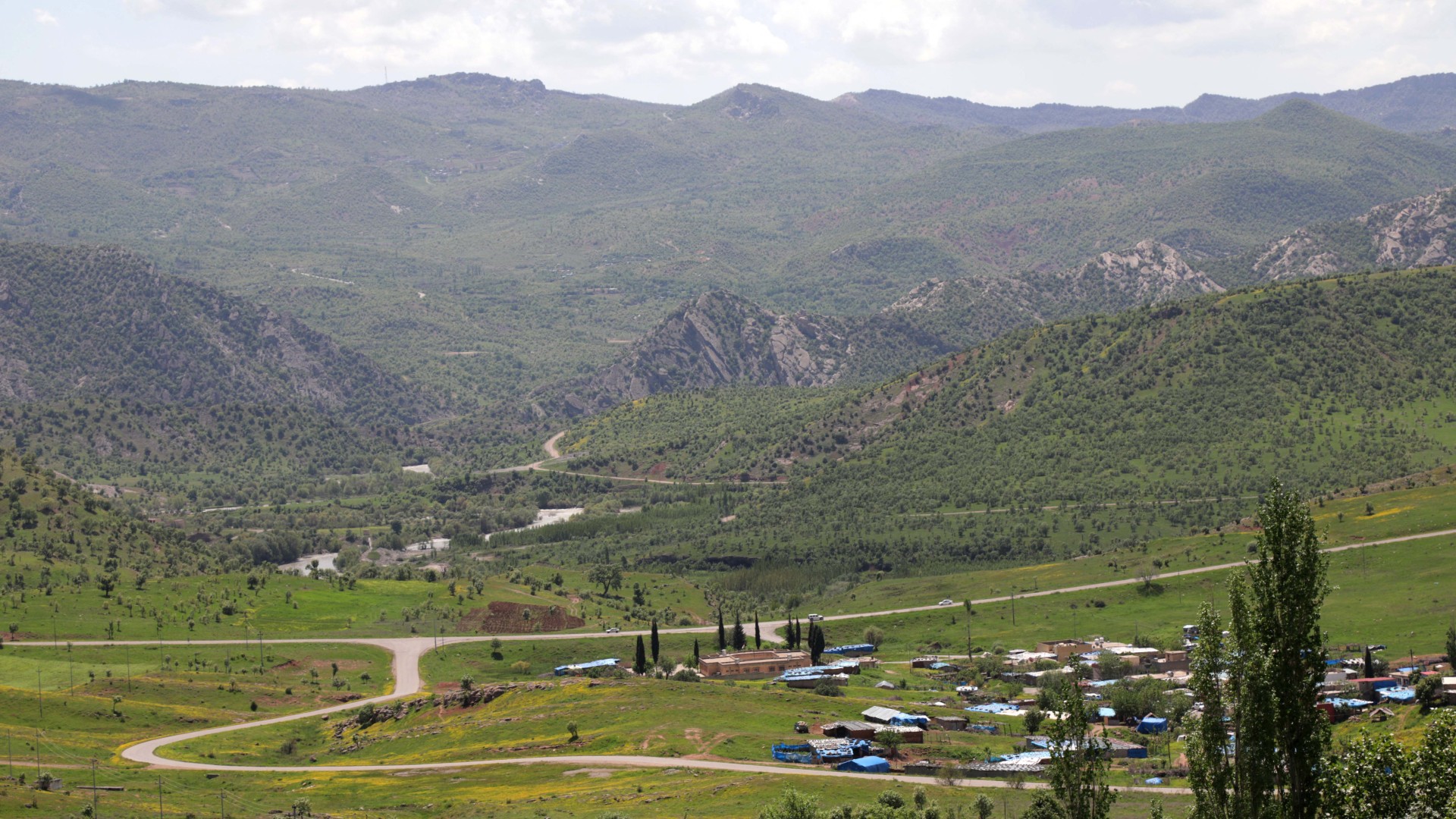Turkey to launch Iraq military campaign to secure road-rail project to Gulf
Turkey[1] intends to use a military assault in northern Iraq[2] this summer to push the Kurdistan Workers' Party (PKK) south and secure a new trade route, sources familiar with the plans told Middle East Eye. The sources said Turkey will target the Kurdish armed group with a series of operations. Since late last year, Turkey has lost dozens of soldiers to PKK attacks on Turkish outposts in northern Iraq's mountainous terrain.
Those deaths have triggered a domestic controversy and scrutiny of the effectiveness of Turkey's tactics. Army sources last year told[3] MEE that the Turkish military was deployed in high-altitude temporary outposts, which were manned to prevent the PKK from infiltrating Turkey's border. Yet the PKK has been able to attack the Turkish positions with relative ease due to tough winter conditions that have rendered drones and other surveillance equipment "useless" because of heavy snow and fog, with limited resupplies.
Stay informed with MEE's newsletters
Sign up to get the latest alerts, insights and analysis, starting with Turkey Unpacked
According to MEE's sources, the new military operations will target the western parts of Iraq's semi-autonomous Kurdistan region.
They will be carried out near territories controlled by Iraq's Kurdistan Democratic Party (KDP), an Ankara ally, cutting the PKK's access through to Mosul. "Turkey's main purpose is very clear. The presence of the PKK in Metina and Gara has the potential to seriously threaten the Iraq Development Road Project[4]," a Turkish source with knowledge said, referring to the planned 1,200km highway and railway project that would connect the Gulf to Turkey through Iraq.
"We both would like to remove PKK from these two areas as well as secure the area for the construction of the project, reaching both objectives in one step." Iraq, Turkey and Gulf Arab states hope to soon finalise the project, which would carry goods through al-Faw port in Iraq's Basra governorate to international markets via Turkey.

The Iraqi government envisions[5] trains operating at speeds of up to 300km per hour, facilitating the transportation of both passengers and goods. Additionally, plans include the establishment of logistic hubs, industrial complexes and the potential integration of oil and gas pipelines.
This ambitious scheme is estimated to require an investment of around £17bn, with projected annual returns of £4bn and the creation of a minimum of 100,000 jobs. Turkish President Recep Tayyip Erdogan is among the chief backers of the project, who promotes it[6] against the rival Israel- and UAE-backed India-Middle East-Europe Economic Corridor [7](IMEC) initiative, which bypasses Turkey.
Seeking cooperation
Turkish Defence Minister Yasar Guler earlier this week told Turkish media that Ankara must deploy forces 30-40 km deep into Iraq to achieve its objectives. Ankara aims to establish a joint operations centre with Baghdad but there has been no progress, he added.
The Iraqi military has started to build up forces on the line between Turkish forces and the PKK, deploying troops to the Balinda area, which is an administrative transition between Duhok and Mergasor in the KDP-controlled area, according to the Turkish source. Notably, Iraqi troops are deployed in the valley that leads to the Gara mountain, where Turkish forces are locked in intense conflict with the PKK. It is not yet clear whether Baghdad has moved its forces into the region for cooperation with Turkey or to be a buffer between the PKK and the Turkish troops to stop further clashes.
The Turkish defence ministry said on Sunday that it dispatched a delegation including senior commander Lieutenant General Metin Tokel to the Iraqi border to hold a security meeting with local officials. A second source said Tokel's presence in the meeting "and the fact that he took pictures with the Iraqis shows Turkey's seriousness about future operations and Iraq's acceptance of this". Guler, Foreign Minister Hakan Fidan, and intelligence chief Ibrahim Kalin are due to visit Baghdad on Thursday to hold a top security meeting with their Iraqi counterparts, discussing counterterror operations.
 Mountains overlook the village of Hiror near the Turkish border in northern Iraq's autonomous Kurdish region, where firefights occur between the Turkish army and PKK fighters (AFP/Safin Hamid)
Mountains overlook the village of Hiror near the Turkish border in northern Iraq's autonomous Kurdish region, where firefights occur between the Turkish army and PKK fighters (AFP/Safin Hamid)
Turkey has been pressuring Iraq to take the PKK threat more seriously and look for areas of cooperation.
"The fragmented structure within Iraq affects decision-making processes and it should also be added that Iran has indirect interventions in changing the direction," a third source familiar with the issue said. "Iran is now carrying out a policy against Turkey to influence Baghdad vis-a-vis the PKK." 'Iran is now carrying out a policy against Turkey to influence Baghdad vis-a-vis the PKK'
- source The source added that Baghdad must eliminate the PKK in the north to reach the stability it seeks with the Kurdistan regional government (KRG) as well as with Turkey. Turkish and Iraqi officials are also discussing the possibility of joint operations alongside KRG forces to secure the area from Mosul to Duhok and the Turkish border town Ovakoy as part of the Iraq Development Road project.
The project is important for Turkey's vision to integrate Ankara to the so-called Middle Corridor, a trade route extending from Asia to Europe.
However, Baghdad and the KRG are in a bitter struggle over oil sales through the Iraq-Turkey pipeline, with the Iraqi Supreme Court issuing verdicts that have squeezed the finances of the Kurdistan region since last year.
This article is available in French on Middle East Eye French edition.[8]
References
- ^ Turkey (www.middleeasteye.net)
- ^ Iraq (www.middleeasteye.net)
- ^ told (www.middleeasteye.net)
- ^ Iraq Development Road Project (www.middleeasteye.net)
- ^ envisions (www.middleeasteye.net)
- ^ promotes it (www.middleeasteye.net)
- ^ India-Middle East-Europe Economic Corridor (www.middleeasteye.net)
- ^ Middle East Eye French edition. (www.middleeasteye.net)